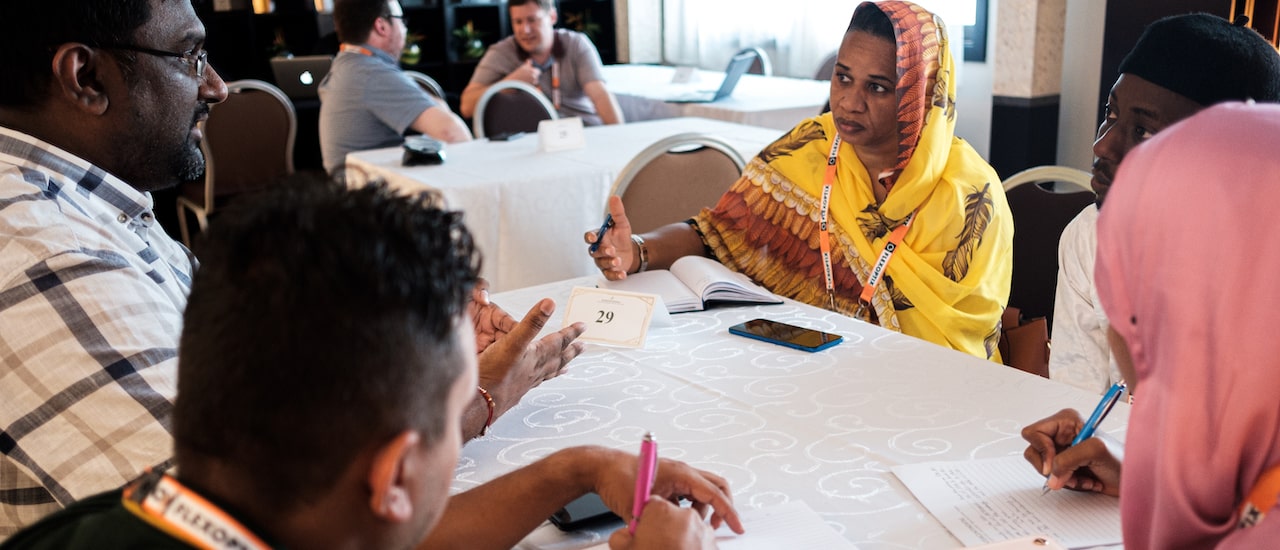Internet exchange points are an important part of the Internet, improving connections for people and businesses and helping economies flourish. A single Internet exchange point (IXP) can serve many communities, based on their digital market size and geographic limits. But in Africa, many on the continent are connecting to Internet traffic that zig zags between faraway places before it reaches them—and they’re paying a steep price for it, with costly, slow Internet connections.
As an emerging market, Africa still has work to do, not only in putting the infrastructure in place, but also in re-enforcing the capacities to operate and maintain these IXPs. It’s especially acute in landlocked countries, like Chad, which routes its Internet traffic through France. By contrast, Europe, which has a third of the land mass of Africa and a little less than half the population, has more than 255 active exchanges. It shows that digital market size, a varied number of IXP’s, and the number of network operators matter.
Fortunately, trust and collaboration between the global Internet community can help close this infrastructure divide—and regional peering events are key to making this happen. During peering forums, people from across the tech spectrum join together to work on real-world solutions. By putting the right people together, their ideas can start to take shape.
Earlier this year, we set out to achieve the 50/50 Vision—an ambitious plan to keep at least half of all Internet traffic in emerging economies local by 2025. When we reach this goal, the people who need it most will have faster, stronger, cheaper Internet. Improving Internet infrastructure in Africa is a cornerstone of this vision, and in the next few years it will help connect millions of people to the Internet and the opportunities it can bring.
In Africa, several regional peering events take place each year: the South African Peering Forum, the Central African Peering Forum, and the West African Peering Forum. Everyone is welcome, from Infrastructure providers to Internet service providers, Internet exchange points to mobile network operators, content providers to large enterprise networks, policymakers to Internet regulators, and even plain-old technology enthusiasts.
The momentum from these regional peering events builds up to Africa’s biggest annual peering event: The African Peering and Interconnection Forum (AfPIF). This year, AfPIF takes place from 23-25 August in Kigali, Rwanda. After a brief hiatus due to the COVID-19 global pandemic, it will return to in-person sessions. (Participants have the option to be present in Kigali or remotely.)
AfPIF focuses on Internet interconnection dynamics, content distribution, and transit obstacles at local and regional levels. It aims to promote the development of national and cross border interconnection and offers the African technical community a unique opportunity to unpack interconnection challenges and opportunities.
Internet peering, traffic exchange and digital infrastructure are at the heart of the accelerated digital transformation in Africa. Therefore, it is vital for people from the internet community to reconvene in person to understand the advancements made and the journey ahead. Liquid Intelligent Technologies is a critical player in the technology, media, and telecom industry, and we are proud to be the platinum sponsor of the AfPIF 2022.
African peering events like AfPIF would not be possible without the support of sponsors like Liquid, Meta, Google, Flexoptix, BSC, and many others. The collaborations forged during AfPIF help to improve the Internet resiliency, quality and cost of access across the entire region. This is in line with our common shared vision of an open, secure, trustworthy, globally connected Internet for everyone.
Don’t miss out! Register for AfPIF today.
Image copyright: ©Nyani Quarmyne

